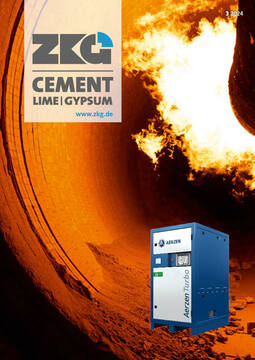Steelworks slag instead of natural stone in concrete
FEhS Institute research project on industrial aggregates
Blast furnace slag has been used as an aggregate in concrete for around 100 years. They replace natural rock and contribute to resource conservation and the circular economy as well as securing the supply of raw materials for the concrete industry. The research project “Suitability of metallurgical slags for use as aggregates in concrete” by the FEhS - Institute for Building Materials Research has confirmed that steelworks slags (SWS), for which no similar regulation exists in Germany to date, can also be used. It included the development of a practical test method to evaluate the spatial stability of SWS in concrete, the evaluation of its suitability for use in concrete and the assessment of environmentally relevant properties.
The suitability of the industrial aggregates for concrete technology was verified with extensive tests on fresh concrete properties, strength development and durability. Final confirmation of the results was provided by a demonstrator test in a ready-mixed concrete plant with the support of Spenner Herkules. To evaluate the environmental compatibility of the SWS, the eluates of the slags, the eluates of the concretes produced with them and the eluates of the recycled aggregates obtained from them were analyzed. They met the respective requirements in almost all cases, especially with regard to the parameter total chromium.
FEhS department head Andreas Ehrenberg: “On the one hand, we succeeded in proving the technical suitability of SWS as an aggregate for concrete. And secondly, we were able to show that the use of SWS in concrete does not pose a risk to the environment due to an increased release of heavy metals in the eluate. Furthermore, the research results show that the additional consideration of the heavy metal content in the solids, which is common today, does not correlate with their release.”
FEhS Managing Director Thomas Reiche: “In order to conserve natural resources and promote a sustainable economy in the future, more secondary raw materials must be used. Our research shows that industrial by-products from the steel industry can make an important contribution to this. However, a prerequisite is the uniform assessment of the environmental compatibility of building materials, regardless of their origin. The definition of solid limit values, for example, makes application considerably more difficult.”
The research project was funded by the German Federal Ministry of Economics and Climate Protection via the AiF SME Research Network as part of the IGF program for the promotion of joint industrial research.





